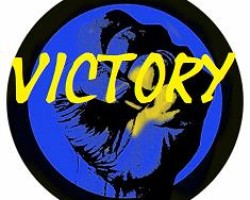
COMING TO YOU LIVE DIRECTLY FROM THE DUBIN LAW OFFICES AT HARBOR COURT, DOWNTOWN HONOLULU, HAWAII
LISTEN TO KHVH-AM (830 ON THE AM RADIO DIAL)
ALSO AVAILABLE ON KHVH-AM ON THE iHEART APP ON THE INTERNET
.
.
Sunday – August 27
———————
Foreclosure Workshop #41: MERS v. Wise Revisited — What Every Homeowner Needs To Know To Defeat the Claimed Standing of Pretender Lenders
It is a matter of common knowledge that the vast majority of original promissory notes, allonges, mortgages, and mortgage assignments in the United States have either been lost through incompetence in the invisible securitized trust market or intentionally destroyed after being digitized for mere convenience.
Also, some securitized trusts and some other owners of mortgage loans such as Fannie Mae and Freddie Mac have intentionally instructed their loan servicers in writing to hide their ownership of mortgage loans, brazenly printing such servicer guidelines on their websites.
Accelerated by the mortgage crisis of 2008, the need by foreclosing plaintiffs for proof of standing in court in an ever-growing number of foreclosure cases at first required their re-creation of mortgages and mortgage assignments through the use of tens of thousands of robo-signers producing as many as 500 false, notarized documents per day.
However, due to the widespread exposure of such robo-signing abuses, foreclosing plaintiffs have had to gradually switch to creating their own manufacturing plants, instead photoshopping promissory notes, endorsements, and allonges with the slogan that “the mortgage follows the note.”
Most courts, intellectually paralyzed by The Rule Ritual, have continued to look the other way, applying outdated or inapplicable rules of evidence and jurisdictional concepts meant for the adjudication of traditional mortgage loan issues, inadvertently protecting foreclosing securitized plaintiffs despite inadequate ownership paperwork nevertheless freely admitted into evidence.
The securitized trust curtain as it were, however, is now lifting, starting with State Courts beginning to insist that a foreclosing plaintiff must prove ownership of the original promissory note at the time of the filing of a foreclosure complaint.
More serious questioning of the standing of pretender lenders can be anticipated in State Courts in the next few years.
On today’s show we will give our listeners an advance understanding what to expect and how best to take advantage of the new trends and to defeat the standing of pretender lenders in present and future foreclosure cases.
Starting with the reminder by the California Supreme Court in Yvanova that strangers to a mortgage loan should not be allowed to come into court and foreclose just because a borrower is found behind in mortgage payments, to Justice Black’s conclusion in Hazel-Atlas that there is no statute of limitations for fraud on the court, we will briefly explore a checklist of the many expected court standing battles that lie ahead and how our listeners can take immediate advantage of such trends.
We will review the following emerging standing issues, time permitting:
1. the attempts by those claiming to own loans entering foreclosure cases after filed,
2. the ratification of pretender lender filings,
3. the inapplicability of real party in interest rules,
4. the effect of a voluntary merger on mortgage ownership,
5. the effect of a government receivership on mortgage ownership,
6. the effect of Fannie and Freddie owning loans behind the scenes,
7. the inapplicability of the doctrine of res judicata,
8. the standing issues when raised by a Rule 60(b) motion,
9. the standing issues when raised only at sale confirmation,
10. the false distinction regarding standing issues blocking foreclosure and standing issues supporting damages,
11. the void vs. voidable intellectual quagmire,
12. the effect of bankruptcy breaking chain of loan ownership,
13. the effect of fraud, including fraud on the court,
14. the discrepancies in a pretender lender’s name, and
15. the doctrine of waiver affecting standing.
Increasing our listener’s knowledge of any of these standing issues could well make a difference in the outcome of an individual foreclosure case, maybe yours.
.
CALL IN AT (808) 521-8383 OR TOLL FREE (888) 565-8383
Have your questions answered on the air.
Submit questions to info@foreclosurehour.com
The Foreclosure Hour is a public service of the Dubin Law Offices
Past Broadcasts
EVERY SUNDAY
3:00 PM HAWAII
6:00 PM PACIFIC
9:00 PM EASTERN
ON KHVH-AM
(830 ON THE DIAL)
AND ON
iHEART RADIO
© 2010-19 FORECLOSURE FRAUD | by DinSFLA. All rights reserved.



